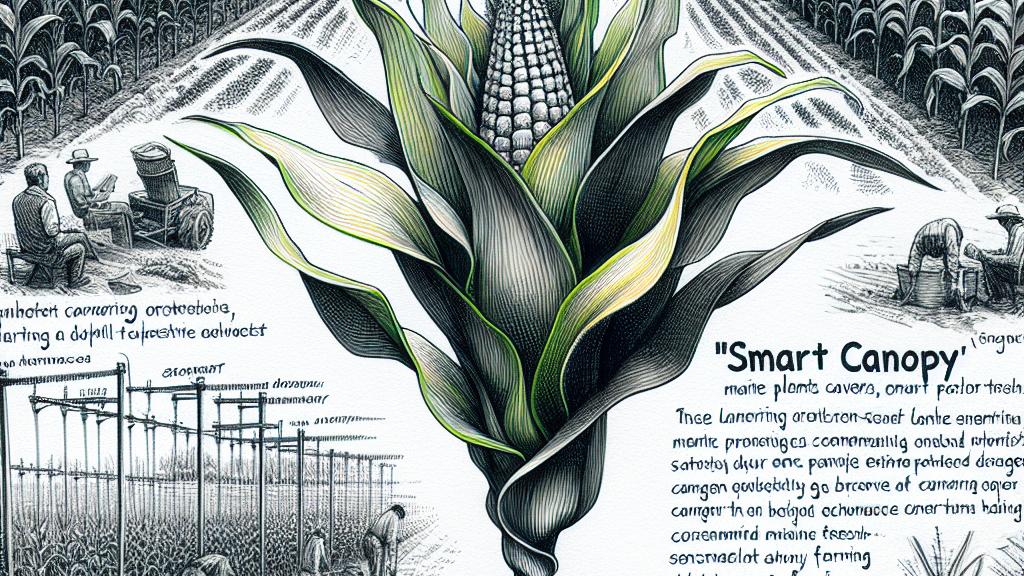Innovative Mutant Maize Enhances Yield with Advanced Canopy Design
Overview
- Discover an extraordinary mutant maize gene that significantly boosts agricultural yields and efficiency.
- Explore the transformation achieved through a unique 'smart canopy' structure adept at thriving in high-density planting conditions.
- Envision a sustainable agriculture future enriched by advanced plant architectures and genetic innovations.

Understanding the Smart Canopy
Recent research from China reveals a stunning breakthrough in maize cultivation: a mutant variety featuring an ingenious 'smart canopy' design. This innovative structure, characterized by upright upper leaves and flatter, broader lower leaves, allows for enhanced light penetration and increased photosynthetic efficiency. As a result, these plants not only excel in high-density planting scenarios—where they traditionally would struggle—but also show remarkable resilience. For example, in real-world trials, farmers observed a staggering increase in grain yield as they adopted this new maize, showcasing how a simple genetic twist can lead to profound transformations in farming practices. Such advancements invigorate hope for agricultural efficiency and productivity, addressing food demands in densely populated regions.
Gene Mutations and Crop Yields
Delving into maize genetics reveals a treasure trove of possibilities. One standout example is the RP125 inbred line, which, through targeted mutagenesis, shines a spotlight on the potential of specific gene modifications. These alterations enable not just the improvement of individual traits, like drought resistance or nutrient uptake, but can also synergistically enhance overall growth performance. Notably, the isolation of the qk1 mutant gene illustrates how understanding these genetic mechanisms can inform breeding strategies, leading to crops that outperform their wild-type counterparts in yield and resilience. Indeed, these insights reinforce the critical role that genetic diversity plays in sustainable agriculture and the urgent need to embrace novel breeding techniques to improve food security.
Implications for Future Agriculture
The emergence of maize varieties equipped with advanced 'smart canopies' holds far-reaching implications for the future of agriculture. As the world grapples with the dual challenges of climate change and a rapidly growing population, the ability to cultivate high-yield, stress-resistant crops becomes increasingly vital. The integration of such innovative plant structures not only enhances productivity but also promotes environmental sustainability by optimizing resource utilization. By blending traditional farming wisdom with cutting-edge genetic research, we can pave the way for agricultural systems that thrive under pressure. Ultimately, this fusion of innovation and sustainability could revolutionize global food production, ensuring that we meet the needs of future generations while preserving our planet’s precious resources.

Loading...